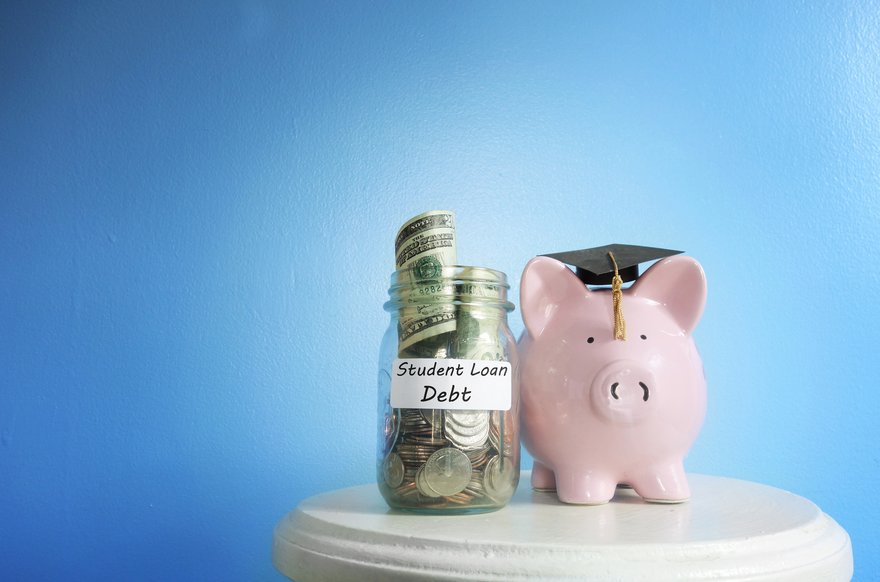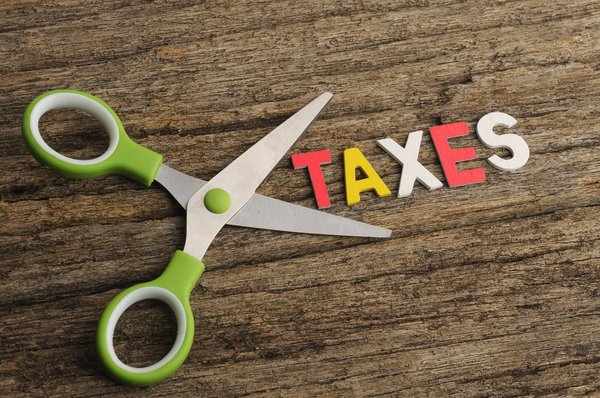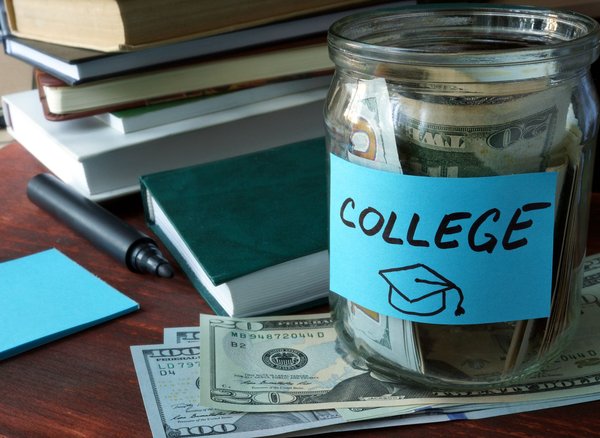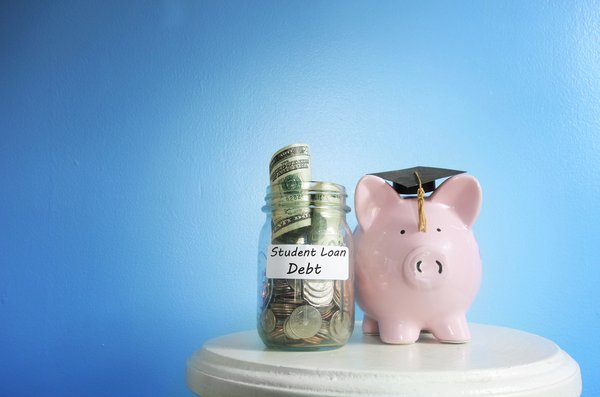Is student loan consolidation right for you? Millions of Americans owe a total of nearly $1.8 trillion in student loan debt, and there are several options available when it comes to consolidating and refinancing student loans.
However, there’s quite a bit you should know before you decide to consolidate your federal or private student loans. Here's some of the important information to learn before you make any decisions.

Consolidation vs. refinancing
Consolidation vs. refinancing: What’s the difference?
The terms consolidation and refinancing are often used interchangeably, but they actually have two very different meanings.
Consolidation, at least in terms of federal student loans, means combining all your loans into one. Your interest rate doesn’t change when you consolidate; it simply becomes the weighted average of the interest rates of your individual loans.
On the other hand, refinancing a debt refers to the practice of using a brand-new loan to pay off and replace an old one. For example, if you have an old private student loan with a $20,000 balance at 12% interest, and you can obtain a new $20,000 loan with an 8% interest rate, you could apply for the new loan and use the proceeds to pay off the original loan.
Refinancing
That said, there is certainly some overlap in how these terms are used in practice, even by financial companies. For example, many personal loan companies advertise “debt consolidation” loans, but they are actually providing new loans that are used to pay off and replace a borrower’s debts.
Consolidating private student loans
Consolidating private student loans
As we discussed in the last section, consolidation means combining all of your loans with no change in interest rate. In the private sector, student loan refinancing is available, not true consolidation loans. But because these terms are often used interchangeably, let’s discuss what private student loan refinancing looks like.
There are several private student loan companies. SoFi (SOFI -0.42%) and Discover (DFS 3.65%) are two well-known examples. They both offer private student loans, designed primarily for borrowers who can’t cover their entire cost of attending school with only federal loans. And they also offer student loan refinancing for borrowers who want to combine and refinance their existing student loans.
There are a few good reasons you might want to refinance your student loans with a private lender. The primary reason is to lower your interest rate. For example, if you took out private student loans with a 12% interest rate while you were in school, and you can now qualify for an 8% interest rate with a private lender, refinancing can potentially save you a lot of money.
You can also refinance to change your loan term. If you have four years remaining on your existing private student loan, you can refinance it with a seven-year term to extend your repayment period and lower your monthly payment obligation, just to give one potential scenario.
It’s important to point out that there are significant drawbacks to refinancing federal student loans with private lenders. For example, you’ll lose the ability to enroll in income-driven repayment plans, and private loans aren’t eligible for federal loan forgiveness programs. It can still make sense to do this in some cases, but most borrowers are better off leaving their federal student loans as federal loans.
How to consolidate private student loans
To consolidate private student loans, the first step is to apply with one or more private lenders that offer student loan refinancing. You can generally do this without affecting your credit score. Different lenders can offer significantly different terms, so it pays to shop around.
After you apply and check your rates, complete the application for the loan that best meets your needs and follow the lender's steps to complete the process.
Consolidating federal student loans
Consolidating federal student loans
You can use a Direct Consolidation Loan to consolidate your federal student loans. Many people without student debt don’t realize it, but you get a separate student loan for every semester when you obtain federal student loans. If you have both subsidized and unsubsidized loans, you might even have two student loans for every semester. It’s not uncommon for students to have 10 or more separate federal student loans by the time they graduate with a bachelor’s degree, and it isn’t unusual for students with graduate degrees to have many more than that.
The point is that consolidating your student loans can make the repayment process much simpler and easier to understand by giving you a single student loan with one monthly payment. You won’t need to figure out how long you’ve been making payments on each individual loan or try to make sense of long statements detailing repayment activity for a dozen separate student loans.
How to consolidate federal student loans
Most federal student loans are eligible for consolidation with Direct Consolidation Loans. Borrowers are eligible for consolidation once they graduate, leave school, or drop below half-time enrollment. Any of these three events will trigger the six-month grace period before repayment begins, and loans must either be in repayment or within the grace period to be eligible.
The application process for federal student loan consolidation is an easy one. The application can be completed online in less than 30 minutes in most cases, and there’s also a mail-in application if you prefer. After you apply, a loan servicer will reach out and walk you through the rest of the process. Once your Direct Consolidation Loan is disbursed, repayment will begin within 60 days.
Should you consolidate your loans?
Should you consolidate your loans?
There are a few good reasons to consolidate federal student loans. We already mentioned the simplicity of having one student loan as opposed to many.
In addition, if you have certain types of federal loans, specifically FFEL Program loans and/or Federal Perkins Loans, consolidating can give you eligibility for income-driven repayment (IDR) plan options that can lower your monthly payment and eventually lead to loan forgiveness.
Student loan consolidation & refinancing FAQs
Is it hard to consolidate student loans?
For federal student loan consolidation, the entire application process generally takes less than 30 minutes. There is no application fee or credit check, and it is generally a straightforward and easy process.
With private lenders, it’s also a generally easy process, and most lenders will allow you to check your rates and repayment terms without a hard credit pull. Once you get an offer you like, you can accept it and fill out some paperwork, and the lender will typically send the money directly to your current lenders to refinance your loans.
Can my student loans be forgiven if I consolidate?
If you consolidate your student loans with a federal Direct Consolidation Loan, they will still be eligible for income-driven repayment plans, Public Service Loan Forgiveness (PSLF), and other federal student loan forgiveness and repayment programs. It’s important to realize that private student loans are never eligible for these repayment and forgiveness programs, so you need to make sure that refinancing federal student loans with a private lender is truly the best move for you.
Does student loan consolidation hurt your credit score?
Federal student loan consolidation will have no impact on your credit score whatsoever. Just like federal student loans, Direct Consolidation Loans don’t involve a credit check. But if you obtain a consolidation loan and don’t make your payments on time, it can absolutely hurt your credit score.
On the other hand, when it comes to private student loan consolidation, the answer is a little more complicated. While you can check your rates with no credit pull, private lenders will do a formal credit inquiry when you apply for and receive a loan. This can have a (minor) negative impact on your credit score initially, but as you establish a strong payment history and pay down your balance, the net effect on your credit score is likely to be a positive one.
What are the disadvantages of consolidation?
When you consolidate federal loans, there are a few potential disadvantages, especially if you consolidate to get a longer repayment period (you’ll pay more interest). And depending on the specific types of loans you’re consolidating, you can lose certain benefits. But for most federal student loan borrowers, there’s little downside to consolidation.
For private student loan consolidation, there are some potential downsides, especially if you use a private loan to consolidate federal loans. In this case, you lose eligibility for income-driven repayment plans and most loan forgiveness programs, so it’s important to make sure using a private refinancing loan is truly your best option.




























